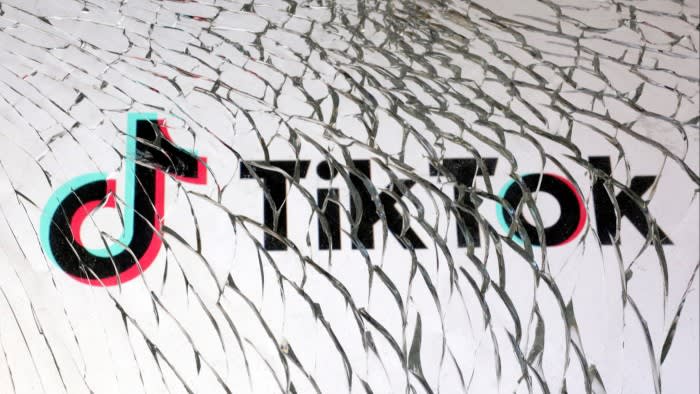Unlock the Editor’s Digest for free
Roula Khalaf, Editor of the FT, selects her favourite stories in this weekly newsletter.
An effort by the US Congress to force TikTok’s Chinese owner to divest the app has gained steam after House Speaker Mike Johnson unveiled legislation to help send aid to Ukraine that could compel the Senate to act on the measure.
The Republican Speaker said the House would vote on separate funding bills — for Israel, Ukraine and Taiwan — and another bill that includes measures to confront China, Russia and Iran. It would contain language on the popular video-sharing platform that is almost identical to a previous measure that easily passed the House last month but has languished in the Senate.
Assuming the House approves the bills when they come up for votes on Saturday, they would be bundled into one package and sent to the Senate, according to people familiar with the plan. That would significantly boost the odds that the Senate passes the measure, since many senators will be reluctant to scupper military funding for Ukraine.
President Joe Biden has backed the plan. “The House must pass the package this week and the Senate should quickly follow,” he said on Wednesday. “I will sign this into law immediately to send a message to the world: we stand with our friends, and we won’t let Iran or Russia succeed.”
The House in March overwhelmingly approved a bill to force ByteDance, the Chinese owner of TikTok, to divest it within 180 days, or else app stores would be banned from distributing the video-sharing platform. The move followed classified briefings from US national security officials who have warned that China could gain access to the personal data of Americans held on the app.
The Senate has been slower to consider the measure, partly because it moves more deliberately than the House. Some lawmakers also have concerns about whether it violates the constitutional right to free speech.
People briefed on the TikTok bill said the only change from the earlier measure was that it gave the president the option to give ByteDance a one-time extension of six months.
If the Senate passed the bill in the coming days, ByteDance would have to divest TikTok before the US presidential election in November. If Biden extended the deadline, it would be pushed back into the next administration.
TikTok denies that the Chinese government has any control over the app or the ability to access user data. It says any congressional move that would result in a possible ban infringes the right to free speech. TikTok did not immediately respond to a request for comment.
One congressional aide said Maria Cantwell — the chair of the Senate commerce committee, which would normally have jurisdiction over the bill — had suggested giving ByteDance one year to divest. The option to extend the divestiture deadline would help satisfy her demand and likely reduce opposition in the Senate.
Chuck Schumer, the Democratic Senate majority leader, has previously warned about a national security threat from TikTok but has not clarified his stance since the bill passed the House. Mike Pence, the former Republican vice-president, recently launched a $2mn advertising campaign to pressure Schumer to support the House bill.
Jacob Helberg, a member of the US-China Economic and Security Review Commission, said senators were examining the TikTok issue and “quickly coming to the same conclusion as their colleagues in the House”.
“The House of Representatives tends to be an accurate reflection of public sentiment,” he said. “The House vote on the TikTok bill clearly shows the public overwhelmingly supports a divestiture. The Senate is taking notice.”
While Biden has backed the effort to remove TikTok from Chinese ownership, his re-election campaign is using the app, which has been downloaded by 170mn Americans, to help him connect with younger voters.

